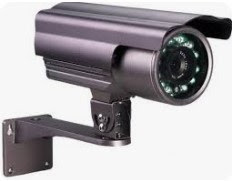1. Analog vs. Digital Cameras:
DVR: Typically used with analog cameras. These cameras
capture footage in analog format, which is then converted into a digital format
by the DVR for storage and viewing.
NVR: Designed to work with IP (Internet Protocol) cameras,
which capture and encode video footage digitally. NVRs process and store this
digital data directly without the need for conversion.
2. Connection Method:
DVR: Analog cameras are connected directly to the DVR using
coaxial cables. The DVR then processes and stores the footage locally.
NVR: IP cameras are connected to the NVR via Ethernet cables
or wirelessly through a network. The NVR manages and stores the footage on its
built-in hard drive or external storage devices.
3. Processing and Compression:
DVR: Analog video signals are processed and compressed within
the DVR. Compression formats like MPEG or H.264 are common.
NVR: IP cameras handle the compression and processing of
video footage before sending it to the NVR. NVRs may support various
compression formats like H.264, H.265, or even newer codecs for efficient
storage and transmission.
4. Scalability:
DVR: Limited scalability due to the analog nature of the
cameras and the hardware limitations of the DVR. Expanding the system often
requires adding more DVR units.
NVR: More scalable as it operates on an IP network. Adding
additional cameras or storage capacity is typically easier, as it involves
integrating new IP cameras into the existing network infrastructure or adding
more storage to the NVR.
5. Remote Access and Monitoring:
DVR: Remote access to footage may be limited and may require
additional hardware or software configurations.
NVR: Generally offers more flexible remote access options
since it's already integrated into a network. Users can often access live or
recorded footage remotely via smartphones, tablets, or computers.









0 Comments